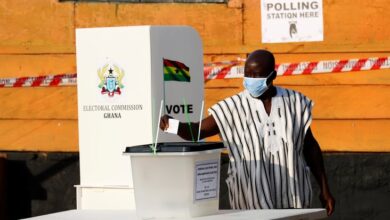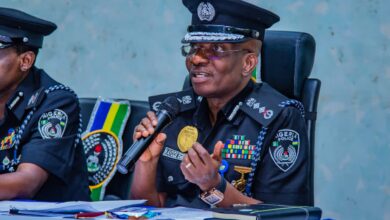Again, FactCheckAfrica Empowers Nigerian Grassroots Communities to Take a Unified Stand Against Misinformation
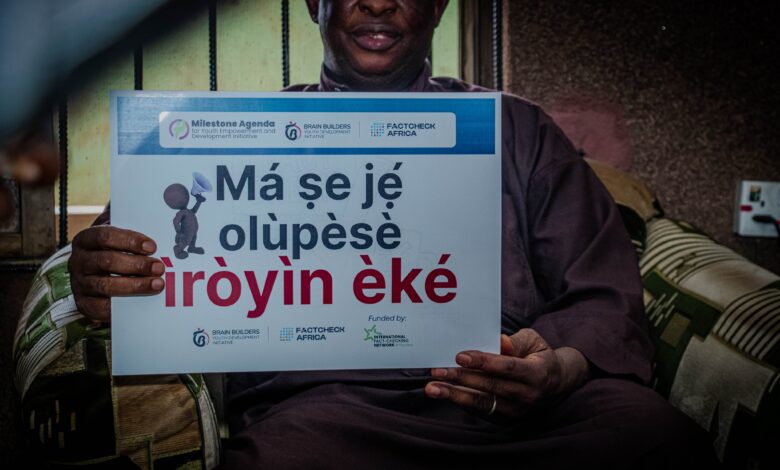
By: Oluwaseye Ogunsanya
Offline tactics or non-technological methods have been touted to be one of the most effective strategies for countering mis/disinformation at the grassroots level in many African countries; this has become necessary due to the failure of internet access and digital literacy that would have helped facilitate authentication/verification efforts in many rural communities.
Evidence has shown that in parts of West Africa, the medium of mis/disinformation extends far beyond people with direct access to a smartphone or a digital device. This is according to WITNESS Africa, a civil society organisation that helps people use video and technology to protect and defend human rights.
The organisation’s project coordinator for Africa, Nkem Agunwa in an article wrote about how the communities that they worked with (including those from Nigeria, Ghana, Sierra Leone, and others) told them that there is a need to prioritise non-technological solutions to create and promote trusted, fact-based information to counter the proliferation of mis/disinformation. She added that this disclosure was expressed by participants at the organisation’s West Africa convening of stakeholders on misinformation and disinformation.
“…participants underscored the limitations of technological solutions in combating the spread of misinformation and disinformation. Participants at the convening further questioned the relevance of technological solutions at the grassroots level where there is low digital penetration and literacy.” She wrote.
Agunwa went on to share some of the non-technological strategies that can be used to counter misinformation at the grassroots level; they include; the empowerment of individuals regarded as ‘verifiers’ with the necessary skills and knowledge to proactively combat mis/disinformation within their communities, the deployment of community theatre as a tool to challenge mis/disinformation as well as the utilisation of audio recorded messages or radio extensively in grassroots communities to pass information and to foster indoctrination of ideologies among other things.
Indeed FactCheckAfrica is well aware of the need to deploy offline tactics or non-technological methods to counter misinformation in local communities and the success that was recorded as a result of using these tactics in the first phase of our community outreach embarked upon earlier in the year, spurred us to do another round of localised fact-check awareness outreach last month.
With funding support from the International Fact-Checking Network, we used various offline tactics to reach over 2000 residents across different regions in Nigeria, including Ganmo and Amoyo in Kwara State, Madagali in Adamawa State, and Pindiga, Kumo, and Kalshingi in Gombe State as well as Kaffe and Gada communities in Sokoto State, educating them on the dangers of misinformation, the importance of fact-checking and also equipping them with the tools and knowledge needed to discern fact from fiction.
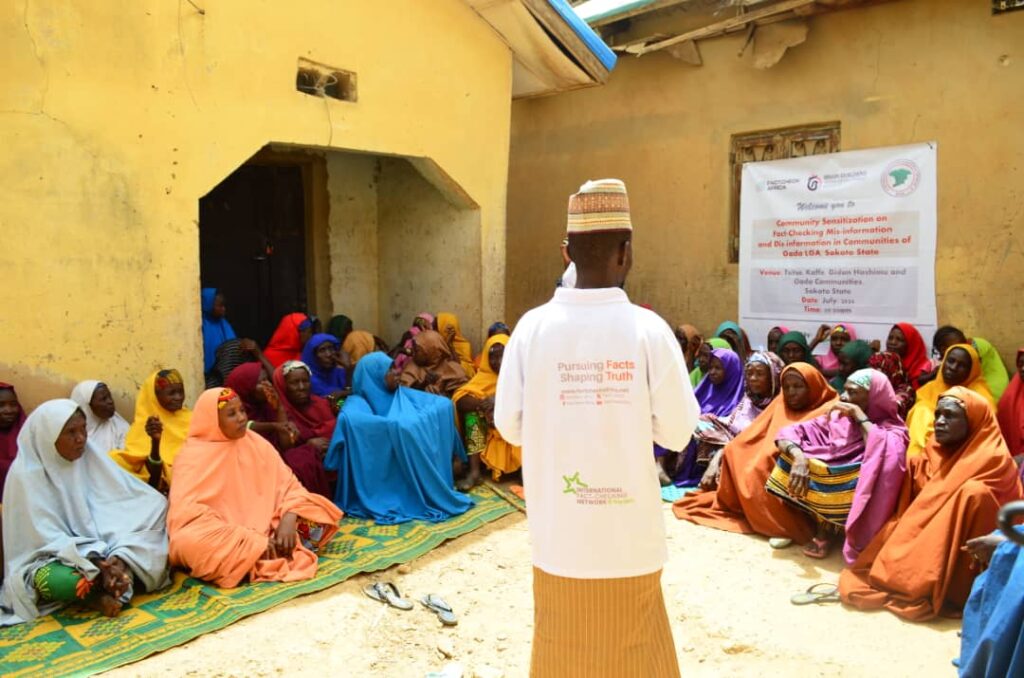
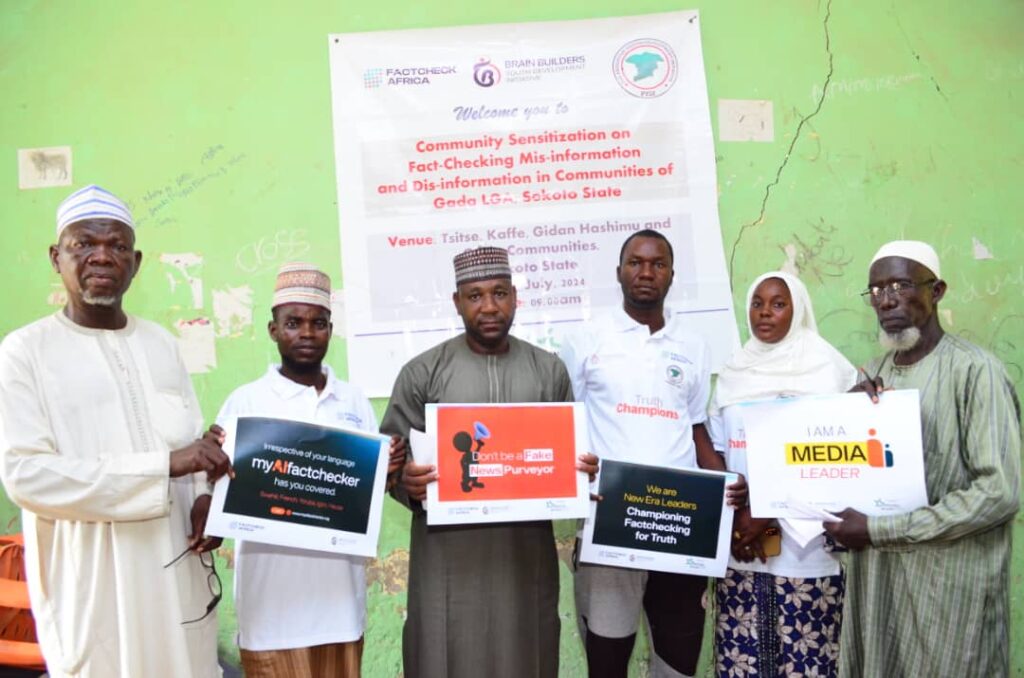
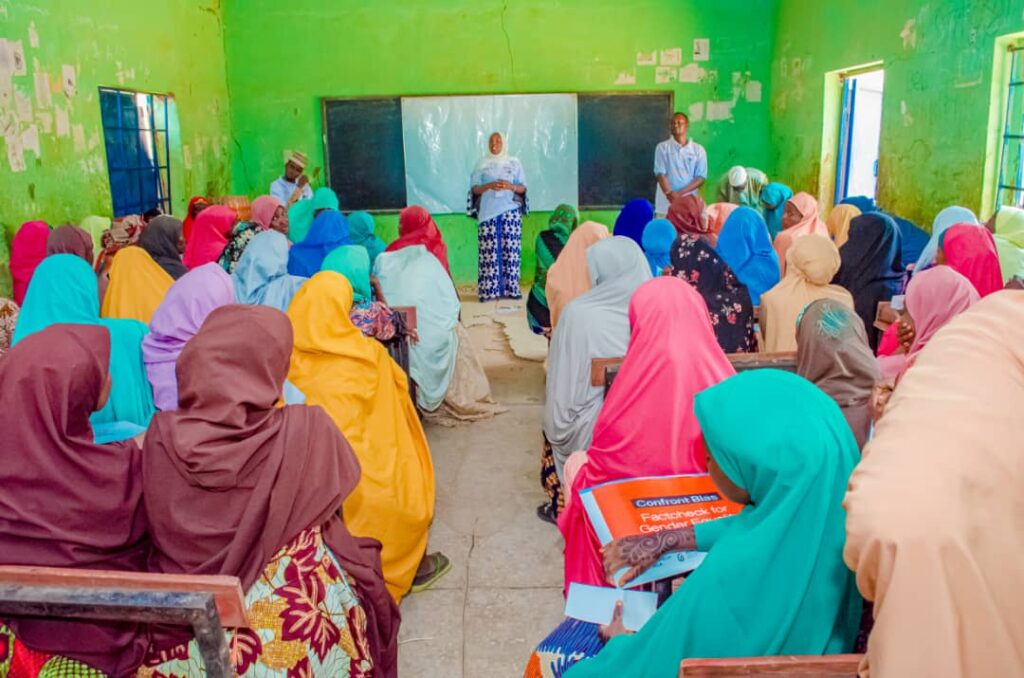
Ganmo, Ifelodun LGA, Kwara State
On July 6, 2024, in Ganmo, Ifelodun LGA, Kwara State, 151 residents gathered to participate in our community sensitization programme on fact-checking and misinformation. The event, spearheaded by the Milestone Agenda for Youth Empowerment and Development Initiative, was facilitated by Bolaji Aladie and Ahmed Adebowale.
The programme, conducted in Yoruba to enhance understanding, was marked by high engagement from key community figures, including the traditional ruler and the Chairman of the Community Development Association.
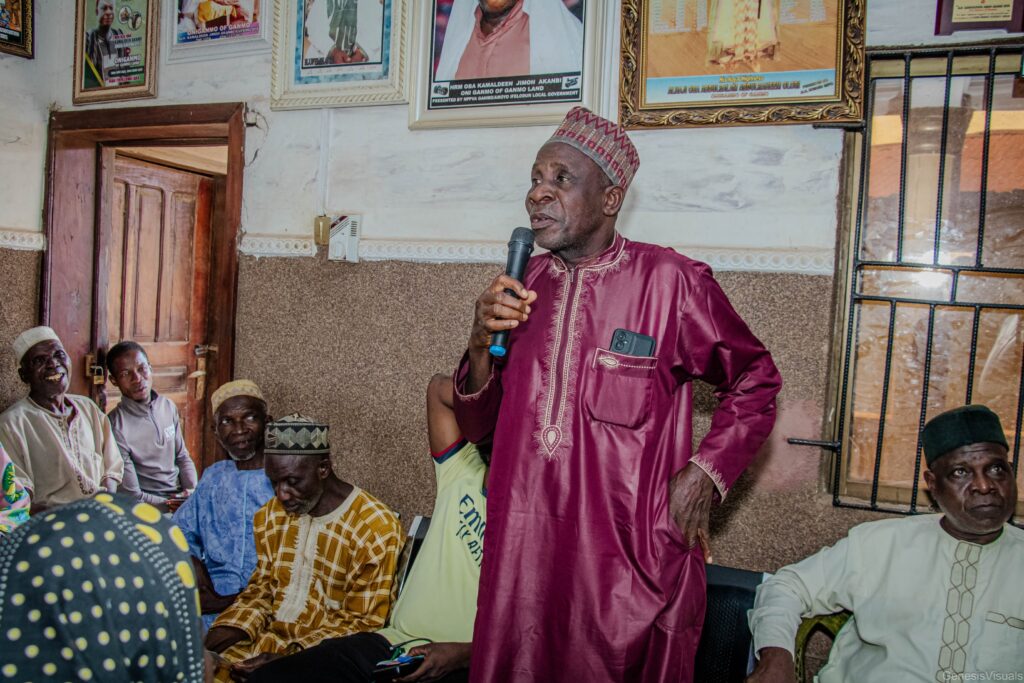
While emphasising the differences between misinformation, disinformation, and mal-information, the facilitators used practical examples and religious references from the Qur’an and Bible to underline the importance of verifying information.
The facilitators noted a strong desire to learn, though, and the community’s desire for further educational sessions as well as the Chief Imam’s commitment to addressing misinformation in his sermons.
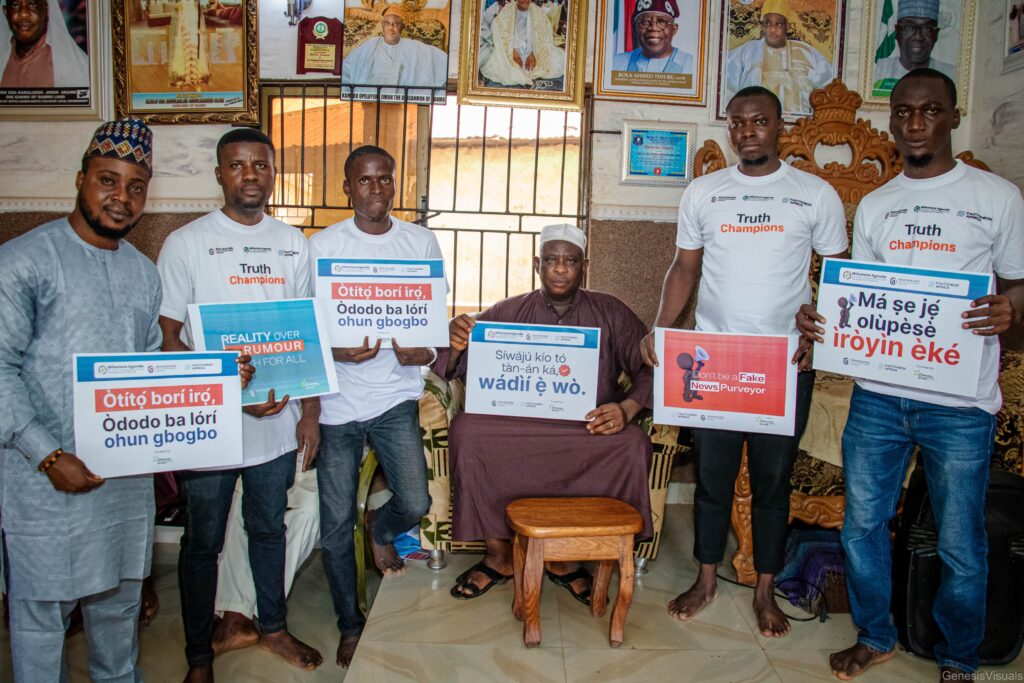
Participants were also introduced to the MyAIfactchecker platform, providing them with a hands-on tool to combat false information and they appreciated the practical skills acquired, pledging to apply the knowledge gained within their communities.
Madagali, Adamawa State
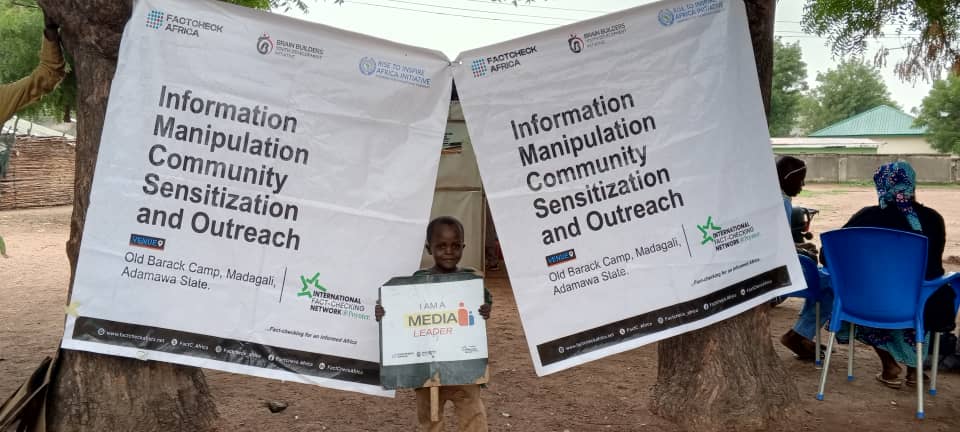
In Madagali, Adamawa State, the sensitization programme which was organised by the Rise to Inspire Africa-Initiative (RIA) specifically targeted the Bruham A&B community, drawing 520 participants including women, men, and people with disabilities Facilitated by Dabiya Bako and Tabitha Joseph Gadzama, the session provided an overview of the dangers of misinformation, differentiating it from disinformation, and emphasised the importance of fact-checking.
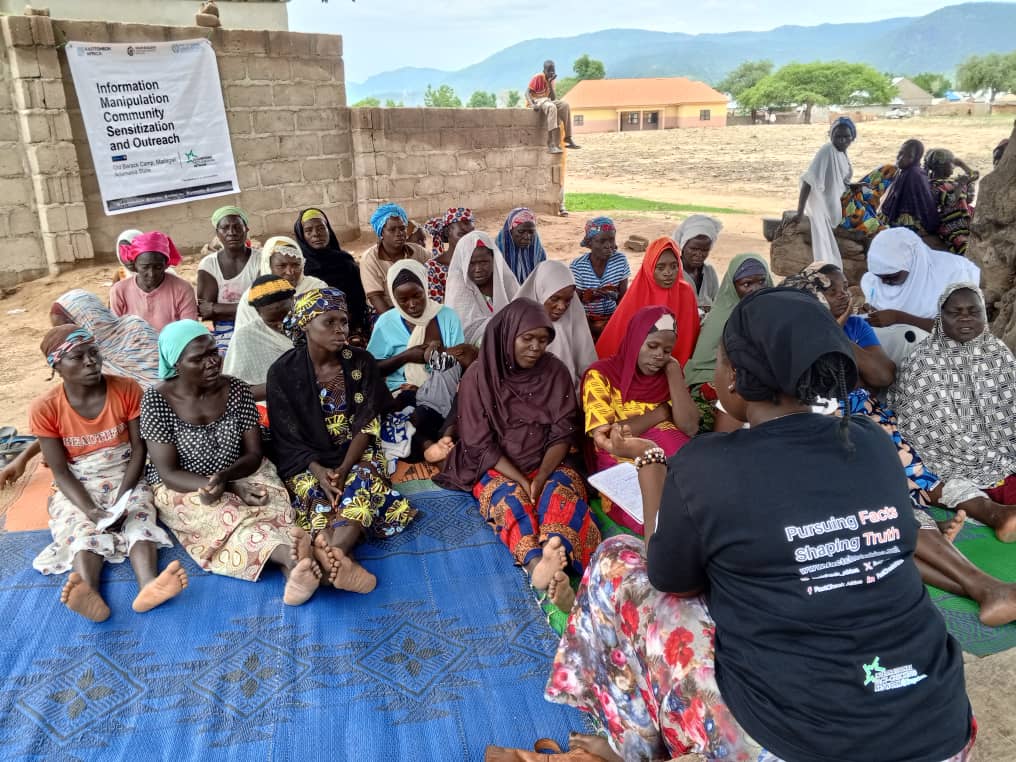
The session was interactive, with participants particularly women and youth engaging in discussions about the spread of rumours and the effects of misinformation on their community. Despite challenges such as language barriers and limited resources, the facilitators reported that participants were eager to apply their newly acquired skills, with many pledging to become advocates against misinformation in their community. The session also extended its reach through a radio broadcast on NAS FM Mubi, amplifying its impact.
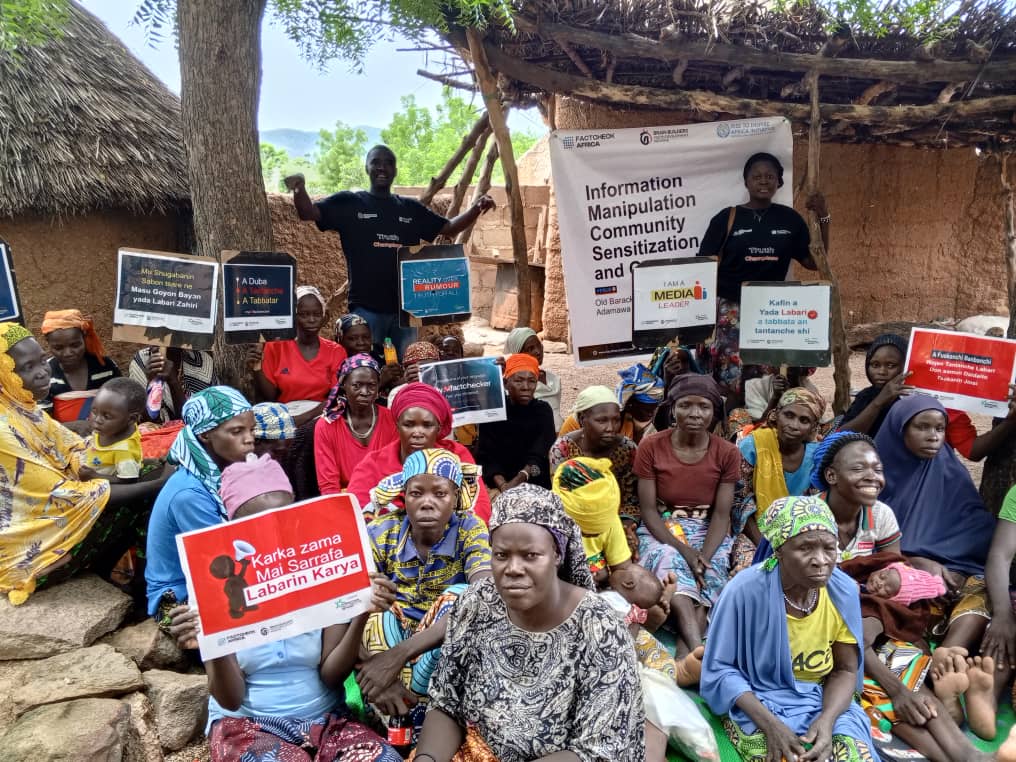
Amoyo, Kwara State
On July 27, 2024, the Milestone Agenda for Youth Empowerment and Development Initiative also conducted its community sensitization programme in Amoyo, Ifelodun LGA, Kwara State.
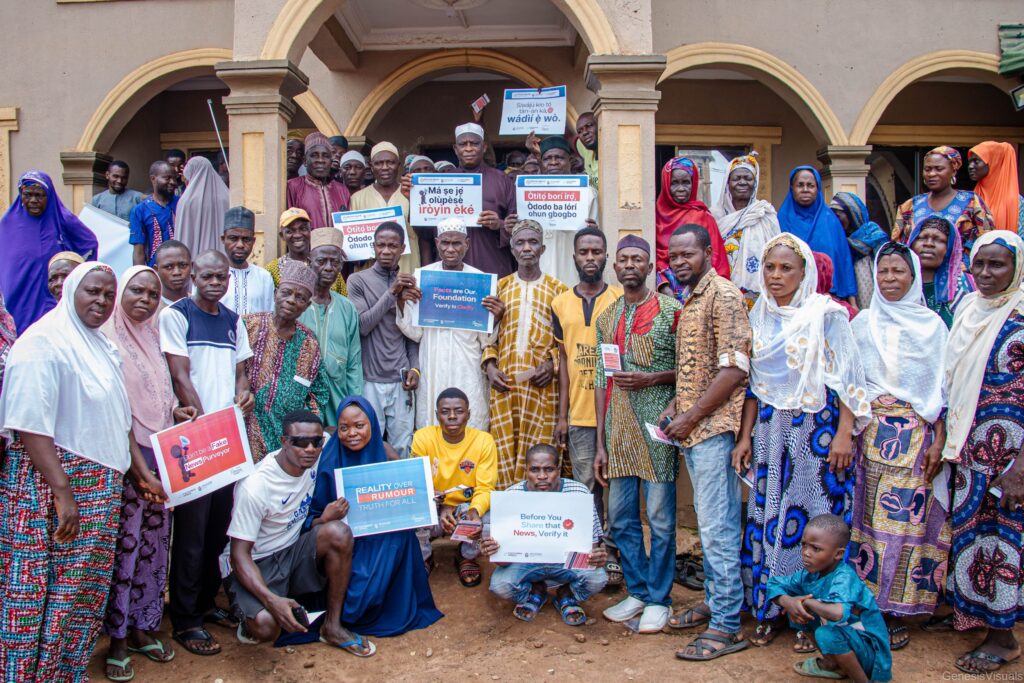
The programme which was facilitated by Raphael Ogundele and Abdullahi Olasupo, drew 115 participants and also focused on the critical distinctions between misinformation, disinformation, and mal-information. Participants were provided with practical guidelines on how to fact-check using both non-technological methods and the technological method using the MyAIfactchecker platform.
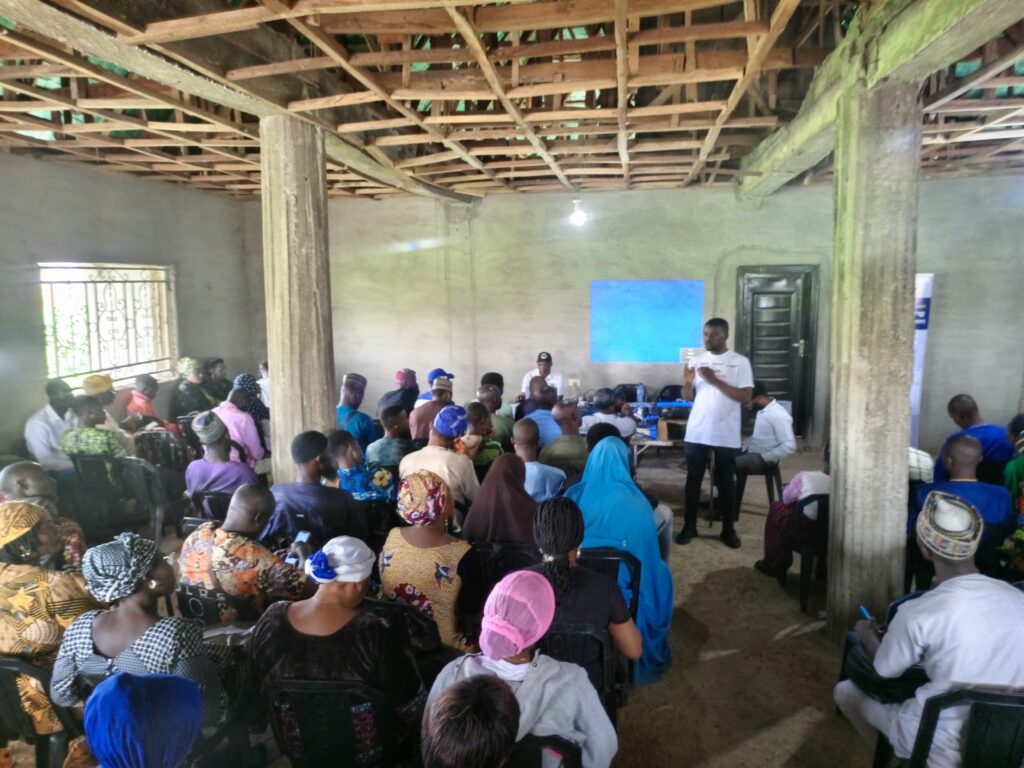
The session saw moderate engagement as participants appreciated the practical skills acquired, with many expressing a commitment to applying this knowledge within their communities. The programme concluded with a call for continued efforts to educate local communities on the dangers of misinformation and the importance of critical thinking.
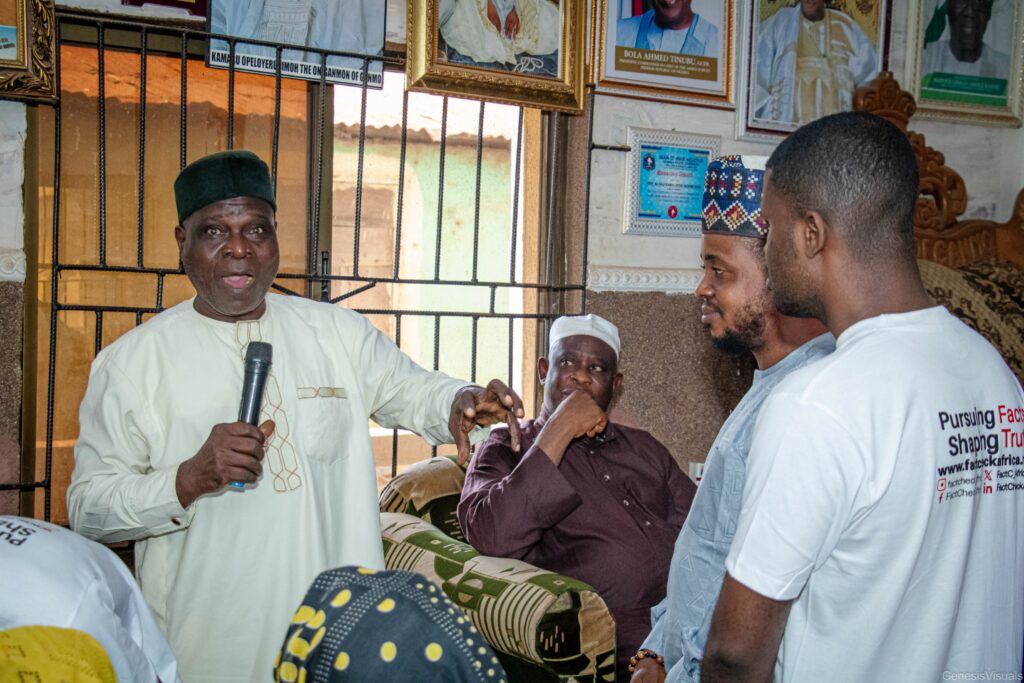
Gombe State
Also in Gombe State, the Hope for Rural Girl’s Initiative organised a series of sensitization programmes across Pindiga, Kumo, and Kalshingi in Akko LGA in July 2024. These sessions, facilitated by Abdu Usman, Eunice Bosede Adebayo, and Hauwau Musa, attracted over 500 participants, predominantly women. The facilitators emphasised the importance of fact-checking and provided practical demonstrations on using the MyAIFactChecker tool.
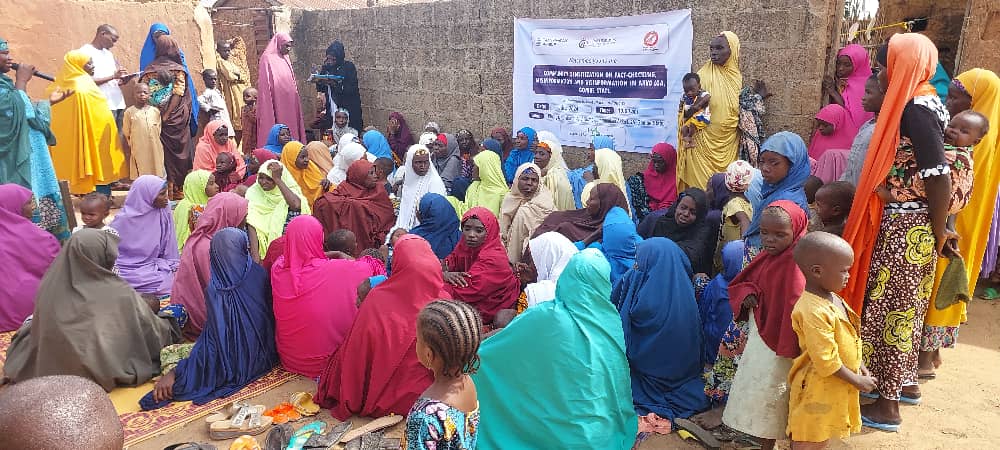
The sessions were highly interactive, with participants sharing their experiences with misinformation and proposing the creation of WhatsApp groups for ongoing fact-checking support. Materials were also distributed to reinforce the lessons. The initiative also uncovered local instances of misinformation, highlighting the critical need for continued education in rural areas.
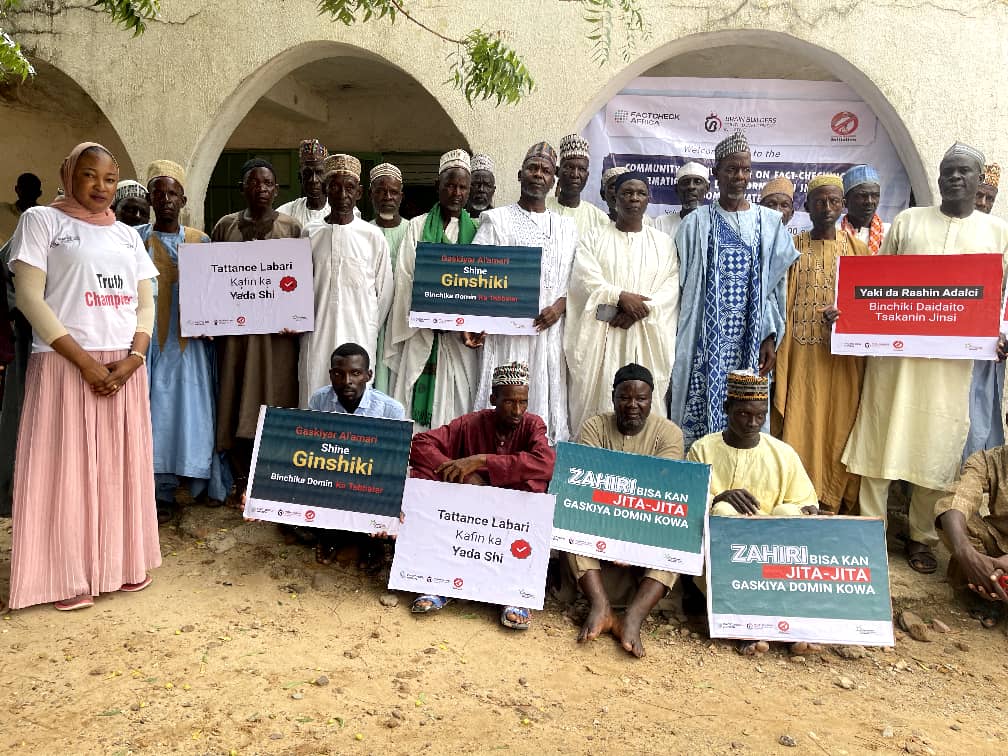
Interactive discussions allowed participants to share their experiences, and materials were distributed to reinforce the lessons. The program uncovered local instances of misinformation, highlighting the need for continued education and support.
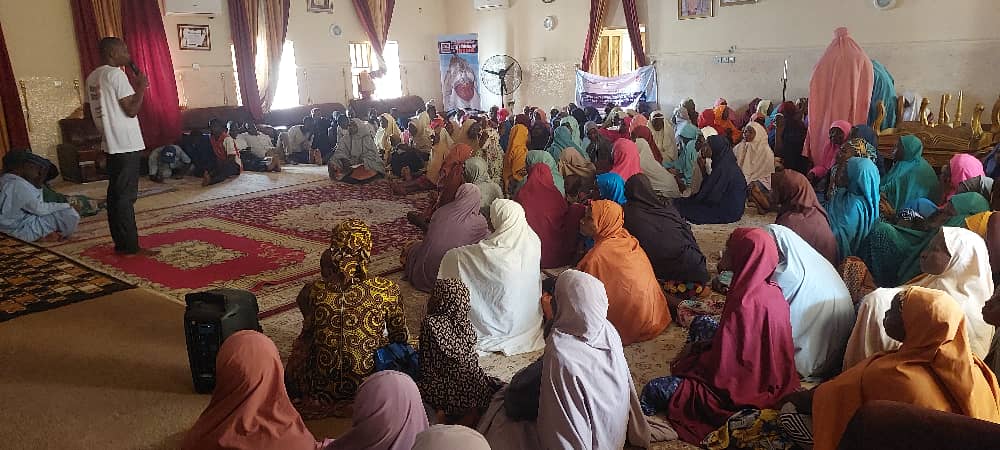
A Unified Commitment to Combat Misinformation
Across these diverse regions, our grassroots sensitization programmes have empowered communities to take a stand against misinformation. The consistent feedback from participants as well as their understanding of the dangers of misinformation and the importance of fact-checking underscores a growing recognition of the dangers posed by misinformation and a collective commitment to combat it.
As these programmes continue to unfold, they represent a significant step towards fostering a more informed and responsible public discourse in Nigeria, especially at the grassroots level. By equipping citizens with the tools and knowledge to verify information, these initiatives are laying the groundwork for a more resilient and truth-conscious society.



